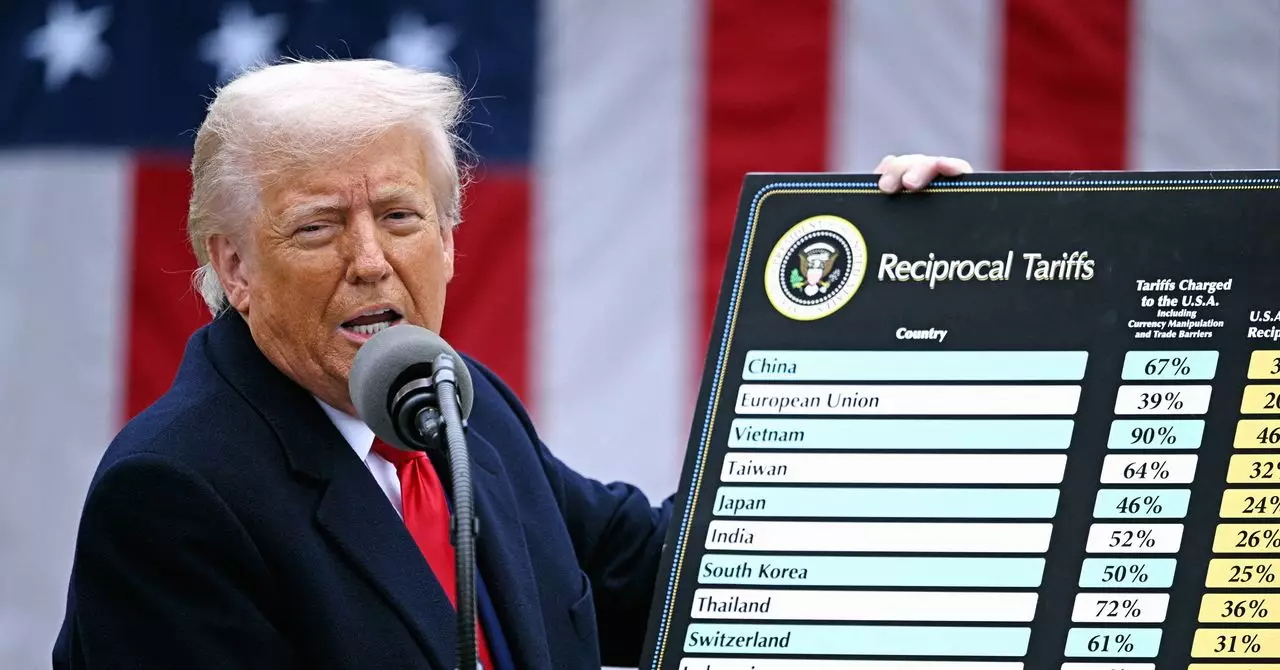The de minimis exemption stands as a pivotal element in the landscape of international trade, particularly concerning e-commerce giants like Shein and Temu. By allowing packages valued under a certain threshold to enter the United States duty-free, this policy has facilitated an avalanche of merchandise arriving from China, thus maintaining competitive prices for American consumers. However, the implications of this exemption extend far beyond just the convenience of lower prices. As various American marketplaces—from eBay to Etsy—thrive on this system, the potential consequences of modifying or eliminating this policy bring into focus an unsettling reality for both consumers and sellers alike.
The de minimis rule has enabled millions of packages to bypass the intricate web of tariffs and duties, allowing consumers and small businesses in the U.S. access to global markets with minimal barriers. With prices kept low, these marketplaces capitalize on a diverse selection of goods, often appealing to budget-conscious shoppers or those seeking unique, hard-to-find items.
Trump’s Recent Maneuvering and Its Potential Repercussions
Amid the swirling discussions around tariffs and trade, the Trump administration’s recent attempts to modify the de minimis exemption serve as a crucial flashpoint. In a bid to tighten trade with China, the former President recently signaled intentions to abolish this beneficial provision, intending it as a bargaining chip in ongoing negotiations with China. Such moves could leave a significant scar on the existing e-commerce ecosystem if rules governing imports drastically change.
With a cutoff date set for May 2, market participants are bracing for a possible overhaul that could reshape the dynamics of online shopping. If implemented, new tariff structures could hurt not only bargain sites like Temu and Shein but also impact established giants like Amazon, which has launched its own affordable product division aimed at the same demographic. The uncertainty swirling around investing in logistics and inventory could stifle innovation in the sector, placing American consumers’ cash-strapped wallets under further scrutiny.
Anticipated Market Shifts and Emerging Opportunities
While the specter of increased tariffs looms ominously, it appears that there are individuals and entities prepared to adapt to these changes. Some tech firms specializing in logistics and data analytics might see circumstances shift in their favor. For example, companies like Palantir are keenly positioning themselves to offer artificial intelligence solutions that help businesses navigate the newly complicated landscape of trade. With tools that incorporate a plethora of data sources needed for efficient tariff compliance, they could become indispensable to companies seeking to maintain their footholds in the market.
Even as tariffs drive complexity, some freight and logistics companies like Nuvocargo are gearing up for increased business. With heightened demand for their services as they help businesses traverse the new landscape of tariffs and customs, they are predicting a surge in activity. Yet, the irony remains that instability is the name of the game; many importers find themselves in precarious situations, caught in limbo while they await clarity on tariff obligations.
Jay Gerard from Nuvocargo stated that the recent chaos surrounding import regulations has created unnecessary complexities for shippers and importers, leading to expensive delays and operational confusion. While these adjustments might open the door for certain tech companies, they also spotlight the vulnerabilities within a rapidly shifting trade environment, raising questions about the ultimate costs that consumers might bear.
Protests and Industry Backlash
As numerous players navigate this complex territory, a sense of unease has begun to proliferate throughout the industry. Small businesses and online marketplaces have expressed dissent against potential reforms, arguing that these changes could result in a regression to antiquated trade barriers that would harm American consumers and stifle the benefits of globalization.
The backlash highlights a growing concern that increased costs resulting from new tariffs may not solely impact large corporations like Amazon but potentially edge many small businesses out of the market entirely, leading to poorer options for consumers. For imported goods that have successfully integrated into the fabric of American retail, modifications could be devastating, cascading through the entire supply chain and altering how American consumers and sellers interact with the global marketplace.
Rather than taking a stand against the inevitability of change, e-commerce stakeholders would do well to anticipate the shifting landscape and develop new strategies that embrace the emerging reality of U.S.-China trade policies. Adaptability could very well become the cornerstone of survival in this uncertain e-commerce terrain.

